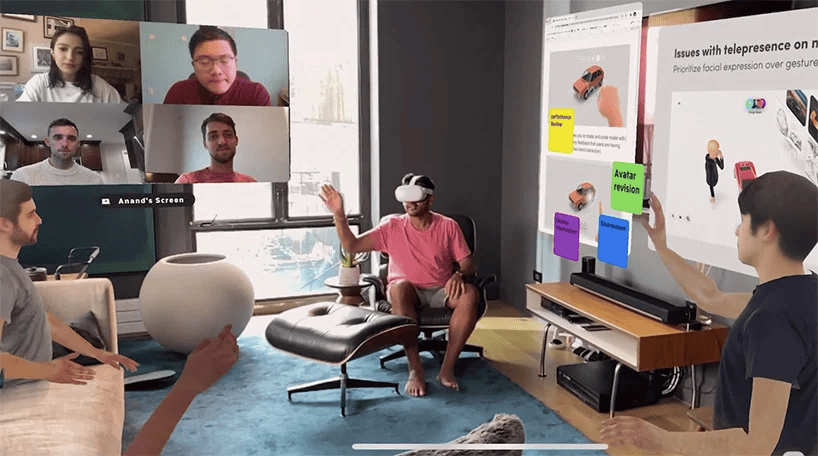繼續閱讀以揭開戰鬥的秘密 工作中的隔離.
你是否有過這樣的經驗:週一走進辦公室,卻只想趕緊鑽回被窩?是不是感覺大多數日子都過得特別漫長,你只能數著時間,等待著下班時間的到來?如果是這樣,你並不孤單——而且這或許不只是周一的問題。對我們許多人來說,職場殺手正在悄悄地吸走我們工作的樂趣。它的名字是什麼? 隔離.
無論你是在遠距辦公還是坐在眾多同事之中,孤獨感都會悄悄地侵襲我們,消耗我們的動力,影響我們的幸福感,讓我們感覺自己被忽視了。
在本文中,我們將探討孤立感是如何滋長的。我們也會探討一些簡單的解決方案,幫助貴公司避免這種影響幸福感的因素,並培養更敬業的員工團隊。
目錄
什麼是工作場所隔離以及如何識別工作中的隔離
你是否曾經感到每天工作都充滿恐懼?或是覺得很難與不同年齡的同事溝通?如果是這樣,你可能正在經歷一個困擾全球職場的孤獨問題——孤獨。
你可能不需要專家告訴你孤獨會如何導致工作動力和效率低下,但他們已經這麼做了。根據 美國精神病學協會孤獨不能限制個人和團隊的表現,降低創造力,削弱推理和決策能力“。
但不僅僅是遠距工作或單人任務讓我們有這種感覺。團隊分散、難以相處的年長同事,以及新手入會訓練的繁瑣流程等因素,都加劇了孤獨感。大多數有這種感覺的人都會被忽視,隱藏著迴避同事和不願參與討論的跡象。
如果你還不知道同事性格孤僻的跡象,這裡有一個 識別工作隔離的清單:
- 避免社交互動和與他人分手。午餐時留在辦公桌前或拒絕參加團隊活動的邀約。
- 在會議和小組討論中性格孤僻或不太健談。不像以前那樣做出更多貢獻或參與。
- 獨自坐在或坐在公共工作區域的邊緣。不與附近的同事交往或合作。
- 表達被排除在外的感覺。不了解社交活動、辦公室笑話/迷因或團隊成就。
- 只專注於個人任務,而不與他人互動或幫助他人。
- 與以前相比,他們對工作的積極性、投入度和活力似乎有所下降。
- 缺勤率增加或單獨離開辦公桌的時間更長。
- 情緒變化,變得更加煩躁、不快樂或與同事疏遠。
- 遠端工作人員很少在虛擬會議或數位協作期間打開攝影機。
- 尚未完全融入工作場所社交圈或指導機會的新員工或年輕員工。
如果你從未定期在辦公室參與過至少一項這樣的活動,那麼你很可能是 72% 的全球員工 誰報告每月都感到孤獨,無論是在外面還是在 內 辦公室。
在辦公室裡,我們常常發現自己完全忽略了別人的對話。我們坐在辦公桌前,聽著同事們的笑聲迴盪在耳邊,卻始終沒有勇氣加入他們的對話。
它最終可能會讓我們一整天都感到壓力,並耗盡我們在其他地方工作或尋求互動的任何動力。
所以在你開始吵著要回到你的工作場所之前,想想你是否真的在那裡得到了社交滿足。 如果是這樣,你明天可以打卡,但如果不是,你可能會在家裡過得更好。
一項小型調查可能會有所幫助
這款定期脈搏檢查範本可協助您評估並改善每位員工在工作場所的健康狀況。如果您正在瀏覽此模板,不妨看看 AhaSlides。 模板庫 進行團隊參與 好100倍!

未來我們會孤獨嗎?
在 COVID 甚至開始將我們與他人隔離之前幾年,孤獨就在美國被宣佈為流行病。 但在經歷了一場大流行之後,我們是否比以前或多或少地為遙遠的未來做好了準備?
雖然未來的工作肯定是不穩定的, 孤獨會在好轉之前變得更糟.
隨著越來越多的人選擇遠端/混合辦公,工作實踐和技術將有很長的路要走才能重現真實辦公室的氛圍(如果你考慮的是全息圖和 虛擬現實,你可能正在做某事)。

當然,這些技術或許能緩解遠距辦公時的孤獨感,但目前它們仍局限於科幻小說的範疇。目前,我們中越來越多的人將不得不與孤獨作鬥爭,因為它的存在本身就是 在家工作的第一大缺點.
除此之外,今天進入勞動力市場的年輕人可能無濟於事 本來就比較寂寞 比他們年長的同事。 一項研究 發現 33 歲以下的人中有 25% 感到孤獨,而 11 歲以上的人中只有 65% 的人感到孤獨,而我們通常假設的群體是最孤獨的。
最孤獨的一代開始在一些公司工作,但這些公司對消除孤獨感幾乎沒有作用,而且 超過兩倍的可能性戒菸 因為這些。
如果不久的將來該流行病升級為大流行病,請不要感到驚訝。
如何面對工作中的孤立感
意識到問題永遠是第一步。
雖然公司仍在應對工作中的孤立問題,但你可以採取一些措施來反擊。
大部分都是從 簡單說說. 自己發起對話,而不是等待他們來找你,是面對屏幕障礙時感覺被融入的最佳方式。
積極參與 制定計劃 與您所愛的人在一起也將真正有助於消除在孤獨的工作日後徘徊的一些消極情緒。
你也可以鼓勵你的老闆和人力資源部門多關註一點 團隊建設, 簽到, 調查 和簡單地 記住 有工作人員每天都在自己工作。
或許你可以描繪自己在這些改變前後的幸福感。雖然可能仍然不如親熱、園藝或博物館那麼美好,但我相信你會感受到 全 好多了。
💡 需要更多治療週一憂鬱症的方法嗎? 透過這些工作名言保持動力!
常見問題(FAQ)
你如何面對工作中的孤立?
1. 與您的經理交談。對與同事脫節的感覺持開放態度,並一起集思廣益解決方案。一位支持你的經理可以幫助你更好地融入。
2. 發起社交互動。邀請同事共進午餐、協作專案、在飲水機旁開始隨意聊天。閒聊可以建立融洽的關係。
3. 加入職場團體。透過查看課外俱樂部/委員會的公告牌來尋找有共同興趣的同事。
4.利用溝通工具。如果遠端或單獨工作,可以透過訊息進行更多聊天以保持聯繫。
5. 安排補習時間。與您想要更頻繁聯繫的同事預訂簡短的報到。
6.參加公司社交活動。努力在工作時間之外去參加下班後的飲料、遊戲之夜等活動來建立人際網絡。
7. 組織自己的活動。舉辦團隊早餐,邀請同事虛擬喝咖啡休息。
8.發揮優勢。找到做出獨特貢獻的方法,以便其他人認識到您的價值並讓您參與其中。
9. 直接解決衝突。透過富有同情心的溝通將消極關係消滅在萌芽狀態。
10. 一起休息。離開辦公桌去喫茶點時陪伴同事。
工作場所隔離會產生哪些影響?
在工作場所感到孤立的員工會缺乏參與和積極性,導致生產力下降、缺勤率上升和心理健康狀況不佳。他們更有可能離開公司,並對公司形象產生負面看法。









